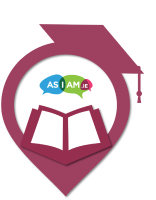A Needs Assessment helps figure out what supports or accommodations you might need at university, college, or an institute of technology.
If you applied through the DARE (Disability Access Route to Education) scheme, the Disability Support Service will usually contact you around the start of term to arrange your Needs Assessment.
If you didn’t apply through DARE, or if you haven’t been contacted by Disability Services within the first 4–6 weeks of the academic year, you should reach out to them yourself. It’s important to make yourself known to the service as soon as possible so they can help you access the right supports.
To carry out the assessment, you’ll be asked to provide documents that confirm your disability—such as a psychological report or medical letter. Based on this and the information you share, a Disability Support Officer will recommend the academic supports and accommodations that suit you best.
They’ll then create a Learning Education Needs Summary (LENS) Report, which outlines:
With your permission, the LENS report is shared with your lecturers and relevant college departments to help put your supports in place.
You’ll meet with a Disability Support Officer. This is a relaxed conversation lasting approximately 1 hour. They’ll ask about things like:
They may also suggest helpful supports you haven’t thought of, like:
To help make the most of your Needs Assessment, it’s a good idea to write down some notes beforehand. This can help you remember everything you want to say and make sure your support needs are clearly understood.
You might want to include:
Bringing notes can make the conversation easier and ensure you don’t forget to mention anything important.
A Needs Assessment helps make sure you get the same access to education as everyone else. There are more supports available in college than in school—and many students find that the right accommodations make a big difference in their success and wellbeing.
